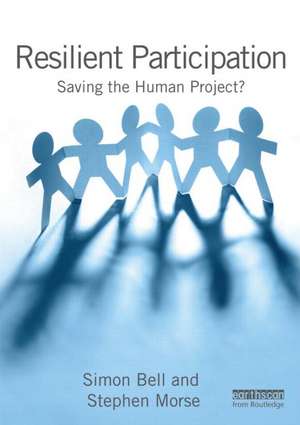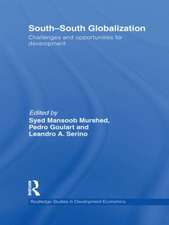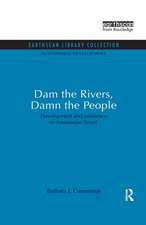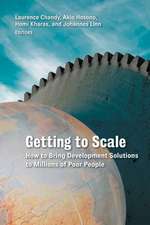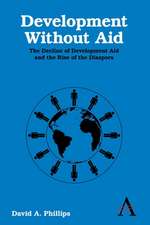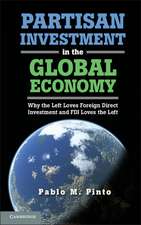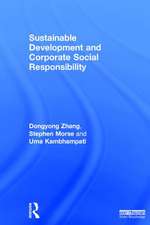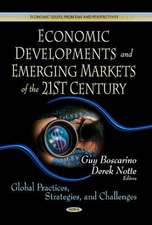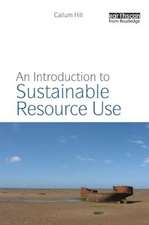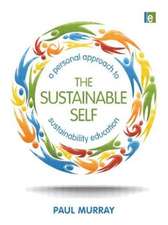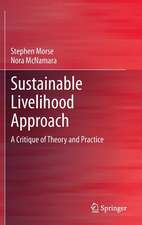Resilient Participation: Saving the Human Project?
Autor Simon Bell, Stephen Morseen Limba Engleză Paperback – 27 mar 2012
Preț: 292.89 lei
Preț vechi: 338.22 lei
-13% Nou
Puncte Express: 439
Preț estimativ în valută:
56.05€ • 58.19$ • 46.74£
56.05€ • 58.19$ • 46.74£
Carte tipărită la comandă
Livrare economică 22 martie-05 aprilie
Preluare comenzi: 021 569.72.76
Specificații
ISBN-13: 9781849712552
ISBN-10: 1849712557
Pagini: 192
Ilustrații: 32
Dimensiuni: 156 x 234 x 13 mm
Greutate: 0.14 kg
Ediția:New.
Editura: Taylor & Francis
Colecția Routledge
Locul publicării:Oxford, United Kingdom
ISBN-10: 1849712557
Pagini: 192
Ilustrații: 32
Dimensiuni: 156 x 234 x 13 mm
Greutate: 0.14 kg
Ediția:New.
Editura: Taylor & Francis
Colecția Routledge
Locul publicării:Oxford, United Kingdom
Public țintă
Academic and Professional Practice & DevelopmentCuprins
Introduction 1. Projects and People 2. Triple Task. An evolving synthesis 3. Interpretation of Triple Task 4. Application of Triple Task 5. What does it all mean?
Notă biografică
Prof. Simon Bell is Professor of Innovation and Methodology, Communications and Systems Department, MCT Faculty, Open University
Prof. Stephen Morse is Chair in Systems Analysis for Sustainability at the Centre for Environmental Strategy, University of Surrey
Prof. Stephen Morse is Chair in Systems Analysis for Sustainability at the Centre for Environmental Strategy, University of Surrey
Recenzii
"Working in groups has never been more important than it is today. But anyone who’s tried it knows how hard it is. Bell and Morse’s entertaining and accessible guide to ‘resilient participation’ is essential reading for those who still believe in the human project. Democratising sustainability 101 has just arrived."- Tim Jackson, Professor of Sustainable Development in the Centre for Environmental Sustainability, University of Surrey and author of "Prosperity Withour Growth"
"The authors are clear in that they wish to analyse the importance of group efficacy and to do so they borrow heavily from the psychodynamic and systems traditions. The result is the Triple Task approach that combines these methodologies. It facilitates an analysis of the degree to which any group achieves its objectives while also scrutinizing the workings of that group." - Dr. Ruth McAreavey, School of Planning, Architecture & Civil Engineering, Queen's University, Belfast
"The authors are clear in that they wish to analyse the importance of group efficacy and to do so they borrow heavily from the psychodynamic and systems traditions. The result is the Triple Task approach that combines these methodologies. It facilitates an analysis of the degree to which any group achieves its objectives while also scrutinizing the workings of that group." - Dr. Ruth McAreavey, School of Planning, Architecture & Civil Engineering, Queen's University, Belfast
